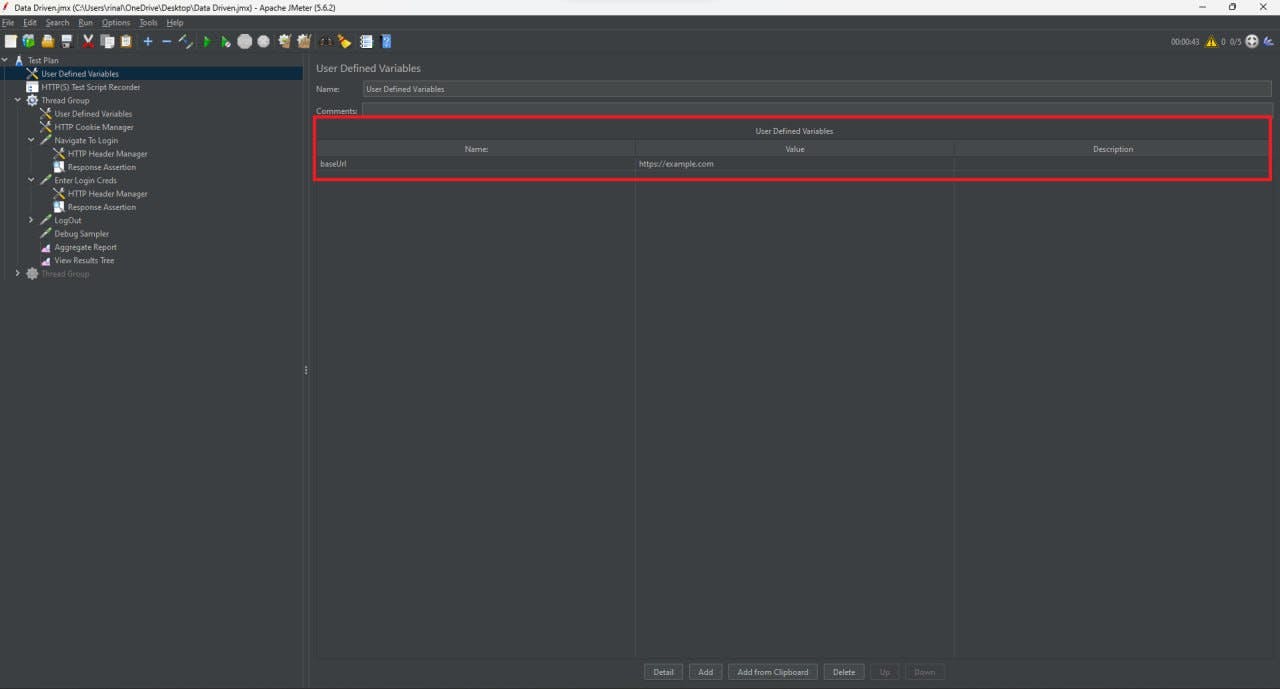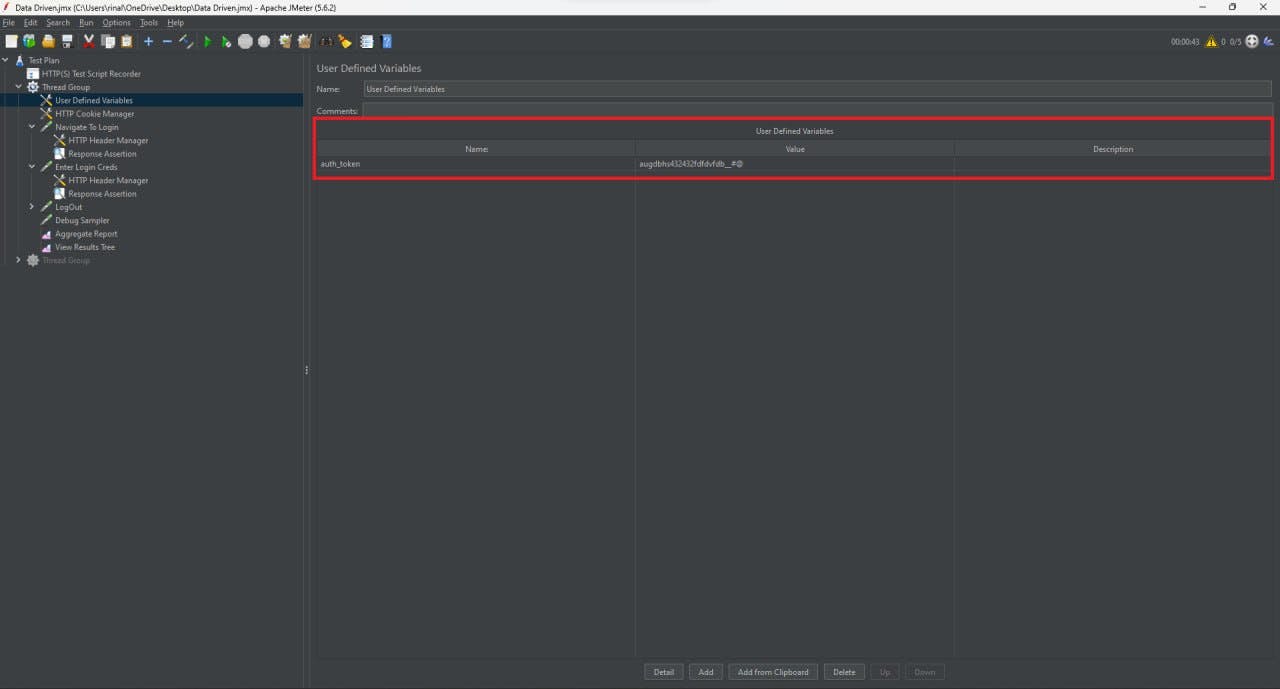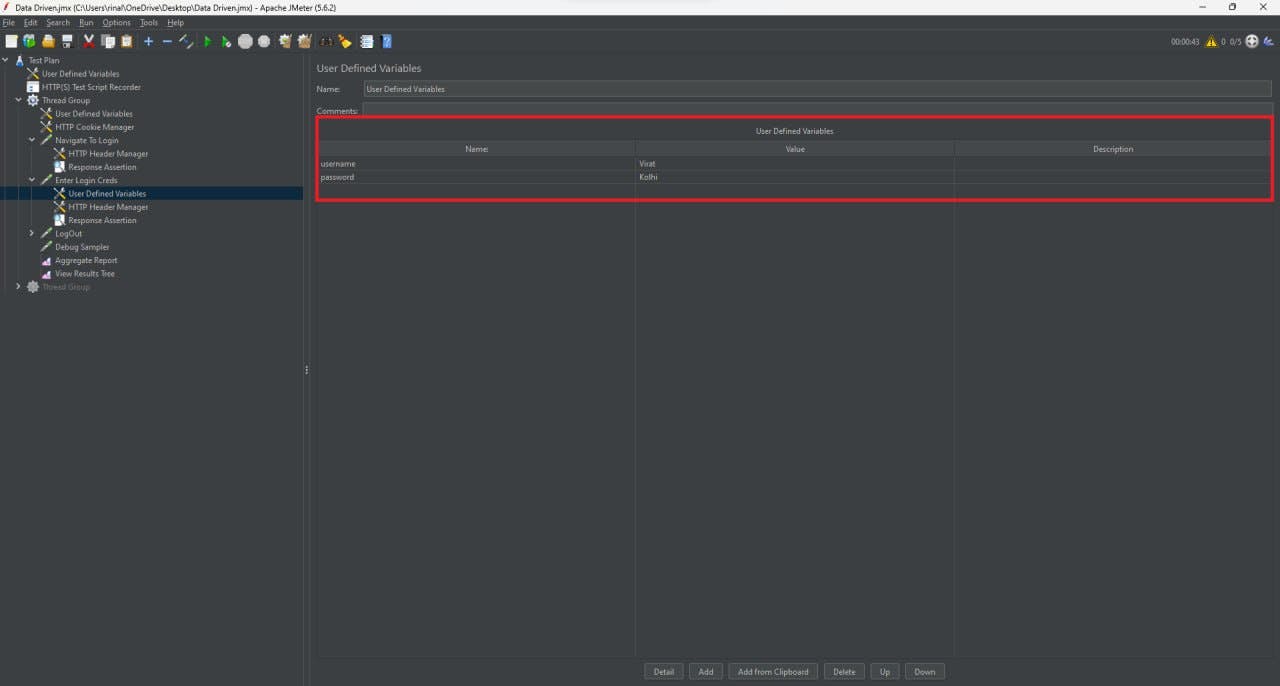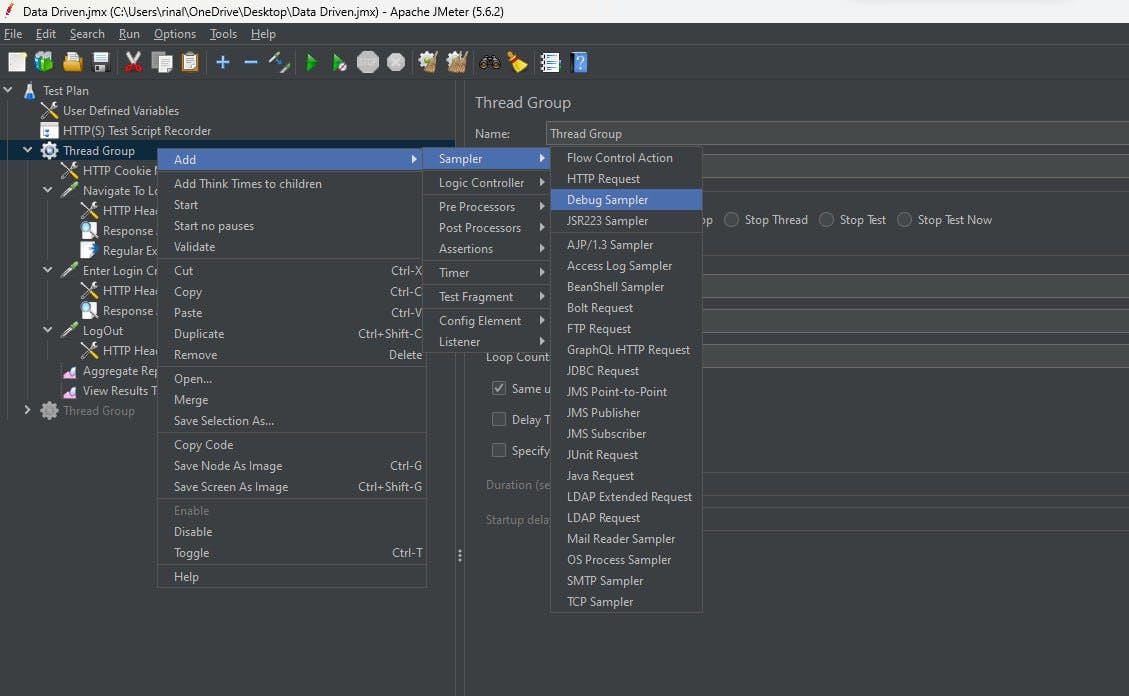Variables And Regular Expression in JMeter
Introduction
JMeter's power lies in its versatility, and understanding variables and regular expressions is key to optimizing your performance tests. Let's take a quick look at how variables make your tests dynamic, and regular expressions help handle dynamic content.
Variables in JMeter
In JMeter, variables can be defined at different levels within a test plan: at the global level, thread group level, and individual request level. These variables allow you to store and reuse values dynamically during test execution. Let's explore each level:
Global Variables:
Purpose: Global variables are defined at the test plan level and can be accessed by any thread group or sampler within the entire test plan.
Configuration:
Right-click on the thread group.
Select "Add" -> "Config Element" -> "User Defined Variables."
Define variables with names and values.
Example: Suppose you want to set a base URL for all HTTP requests in your test plan.

Thread Group Variables:
Purpose: Thread group variables are specific to a particular thread group. They are shared among all samplers within the same thread group.
Configuration:
Right-click on the thread group.
Select "Add" -> "Config Element" -> "User Defined Variables."
Define variables with names and values.
Example: If different thread groups need different authentication tokens, you can define thread group variables.

Request-level Variables:
Purpose: Variables defined at the request level are specific to a particular sampler. They are used only for that specific sampler.
Configuration:
Right-click on the thread group.
Select "Add" -> "Config Element" -> "User Defined Variables."
Define variables with names and values.
Example: If a specific HTTP request requires a unique parameter, you can define request-level variables.

Variable Scoping:
Global Variables: Accessible by all thread groups and samplers within the entire test plan.
Thread Group Variables: Shared among all samplers within the same thread group.
Request-level Variables: Specific to the sampler where they are defined.
Variable Usage:
Variables can be referenced in various fields using the ${variable_name} syntax. For example, if you have a variable named BASE_URL, you can use it in an HTTP request path as ${BASE_URL}/endpoint.
By leveraging variables at different levels, you can create dynamic and flexible test plans in JMeter, making it easier to maintain and scale your performance tests.
Regular Expression in JMeter
Consider a scenario in which you need to extract text from a webpage, such as a username and password. Here's an example:
Test Plan Structure:

- Navigate to Login (HTTP Request)
You need to extract the login credentials before the "Enter Login Creds" request. Add a "Post-processor -> Regular Expression Extractor" in the "Navigate to Login" request.
Regular Expression Extractor Configuration:
Apply the necessary regular expression to extract the desired values (e.g., username and password).

Now, you can access the extracted username and password in your subsequent requests.

Variable Usage in Next Request:
Variables extracted using regular expressions can be referenced in subsequent requests using the ${variable_name} syntax.

Debug Sampler in JMeter
In JMeter, the Debug Sampler is a specialized sampler designed for debugging and troubleshooting test plans. Unlike regular samplers, the Debug Sampler doesn't send requests to a server. Instead, it allows you to inspect and log information about variables and properties during the test execution.
Key Features and Uses:
Logging Variables
Viewing Sampler Data
Identifying Issues
Adding Debug Sampler:
Right-click on the thread group where you want to add the Debug Sampler.
Navigate to "Add" -> "Sampler" -> "Debug Sampler."

Conclusion
With a solid grasp of variables and regular expressions, you'll elevate your JMeter proficiency. These tools provide the flexibility needed to handle dynamic data, ensuring your performance tests accurately mirror real-world scenarios. Incorporate these elements to create precise, efficient, and adaptable performance tests.